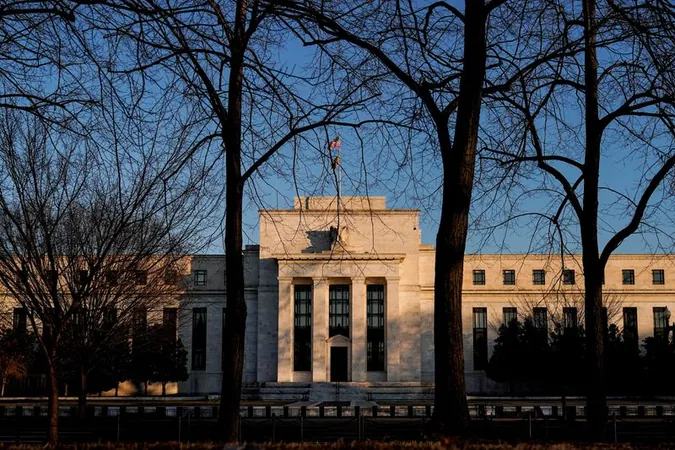
US Federal Reserve Considers Overhaul of Bank Stress Tests Following Legal Shifts
2024-12-23
Author: Ken Lee
Introduction
In a significant development, the U.S. Federal Reserve announced on Monday that it is contemplating substantial revisions to its annual bank stress tests. This potential change comes against the backdrop of recent legal rulings, marking a pivotal moment in Wall Street's relationship with bank regulation.
Proposed Changes to Stress Tests
The Fed is exploring the idea of allowing banks to provide feedback on the mathematical models used in these stress tests, a move that could significantly empower lenders. Additionally, the central bank is considering a proposal that would permit banks to influence the hypothetical economic scenarios utilized during the annual evaluations of their financial health. Another notable change includes averaging results over two years instead of one to mitigate annual fluctuations in the capital banks must reserve to cover potential losses.
Importance of Stress Tests
Originally instituted in the wake of the 2007-2009 financial crisis, these stress tests are crucial for determining whether major banks can withstand economic shocks. They play a vital role in the U.S. capital framework, guiding how much liquidity institutions must allocate to absorb losses and influencing how much they can return to shareholders.
Regulatory Intentions
The Fed clarified that these proposed changes are aimed at enhancing the tests' effectiveness and resilience rather than altering the overall capital requirements for banks. This shift follows recent court decisions that have reshaped the framework of administrative law in significant ways. Notably, in June, the U.S. Supreme Court weakened federal regulatory power by overturning a long-standing precedent that had favored government agencies in interpreting laws, particularly in a case involving Chevron.
Legal Context and Challenges
While the Dodd-Frank Act of 2010 mandates testing of banks' balance sheets, the Fed's analysis of capital adequacy during these tests is not legally required. Analysts suggest that the recent judicial changes could make stress tests more susceptible to legal challenges.
Industry Response
Wall Street banks, along with their Washington trade associations, have been actively advocating for greater transparency in these stress tests throughout the year. These discussions are part of a broader industry campaign aimed at mitigating the impacts of the yet-to-be-finalized Basel Endgame capital requirements—a set of rules that could substantially increase the capital burden on banks. Interestingly, this year, banks have been more inclined to consider legal action against federal regulators, reflecting a shift in the judicial climate that appears more favorable to industry arguments against government authority.
Conclusion
The Bank Policy Institute, a major industry trade group critical of the stress tests, characterized Monday's announcement as a crucial step toward increased transparency and accountability. Greg Baer, President and CEO of the BPI, stated, “We are reviewing it closely and considering additional options to ensure timely reforms that align with good law and sound policy.” As the regulatory landscape continues to evolve, stakeholders across the financial sector are keenly watching these developments. The future of bank stress tests hangs in the balance as both regulatory bodies and financial institutions navigate this critical juncture. Stay tuned as we report on this unfolding story and its potential impacts on the banking industry!


 Brasil (PT)
Brasil (PT)
 Canada (EN)
Canada (EN)
 Chile (ES)
Chile (ES)
 España (ES)
España (ES)
 France (FR)
France (FR)
 Hong Kong (EN)
Hong Kong (EN)
 Italia (IT)
Italia (IT)
 日本 (JA)
日本 (JA)
 Magyarország (HU)
Magyarország (HU)
 Norge (NO)
Norge (NO)
 Polska (PL)
Polska (PL)
 Schweiz (DE)
Schweiz (DE)
 Singapore (EN)
Singapore (EN)
 Sverige (SV)
Sverige (SV)
 Suomi (FI)
Suomi (FI)
 Türkiye (TR)
Türkiye (TR)